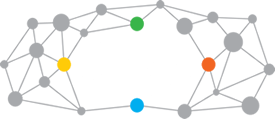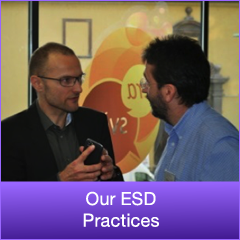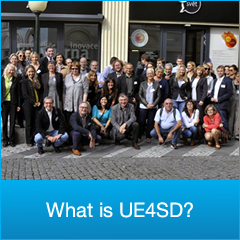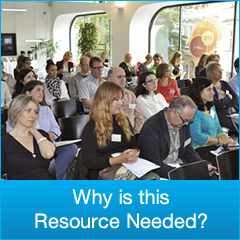International ESD Initiatives
The GAP identifies whole-of-institutional change as a priority for education systems, as well as strengthening of capacity building and professional development of all who work as learning facilitators for ESD.
Evaluation and monitoring report on the UN Decade of ESD (DESD) pointing to the leadership challenges in embedding ESD in HE as well as the need for staff development, capacity-building and institutional networks.
International review of good practices, pedagogical approaches and learning processes aligned with ESD, part of the monitoring and evaluation work carried out during the UN Decade of ESD (DESD).
UNESCO (2016) Global Education Monitoring Report
Series of reports to monitor monitor progress towards the education targets in the new Sustainable Development Goals (SDGs) framework and examine the effectiveness of policy and programmes in this area.
UNESCO Global Action Programme – UE4SD Pledge
European ESD Policy & Guidance
UNECE (2015) ESD Implementation Framework, United Nations Economic Commission for Europe
The new UNECE ESD implementation framework developed to support the continuation of the UNECE Strategy for ESD beyond its first decade (2005–2015).
Tools for workshops linked to the UNECE ESD Educator Competences framework, developed and launched in 2011 as part of the UNECE Strategy for ESD.
Framework of key competences for use by educators and with learners, developed by a pan-European expert group and based on the principles of the Delors framework for transformative education in the 21st century.
Document highlighting the role of education and training of teachers to achieve the implementation of ESD and understand its pedagogical principles for use across the compulsory and tertiary education sectors.
Mid stage report on implementation of the 2005 UNECE ESD strategy, which signalled the need for focus on professional development, support and training for educators, to support wider implementation of ESD.
A flexible framework adopted in 2005 for implementing ESD – to be adapted by member states based on needs and priorities, to encourage integration of ESD into primary to tertiary education, vocational and adult learning.
ESD & Professional Development
UK national guidelines on ESD that support the inclusion of ESD into the UK Quality Code for Higher Education, which informs national audits of curriculum standards and enhancement systems for all UK universities.
which included an overarching report on pedagogical innovation and the future of the HE curriculum, connecting ESD with the new dialogues around flexible learning in the globalised HE environment.
Web resource from the Leading Curriculum Change for Sustainability project at University of Gloucestershire to advance ESD as a curriculum quality agenda, working with the UK Quality Assurance Agency and 5 universities.
Report from an international study of leadership capabilities and competences required for bringing change into education systems to support ESD and sustainability, focused on the higher education sector.
Output from an ENSI project to respond to the need for integration of ESD into the curriculum from schools to higher education level, including compulsory and teacher education.
Recommendations from an international network of educators to guide the use and implementation of ESD across curriculum, education policy and practice, with focus on teacher education.
HEA (2012) Future Fit Framework, Higher Education Academy, UK
Guidance framework and toolkit for developing ESD in the higher education curriculum, created by Professor Stephen Sterling with the UK HEA.
WWF (2012) Professional Development Framework of Teacher Competences for Learning for Sustainability
Competences framework aimed at teacher education, including review of existing frameworks, developed by Dr Glenn Strachan with WWF-UK.










